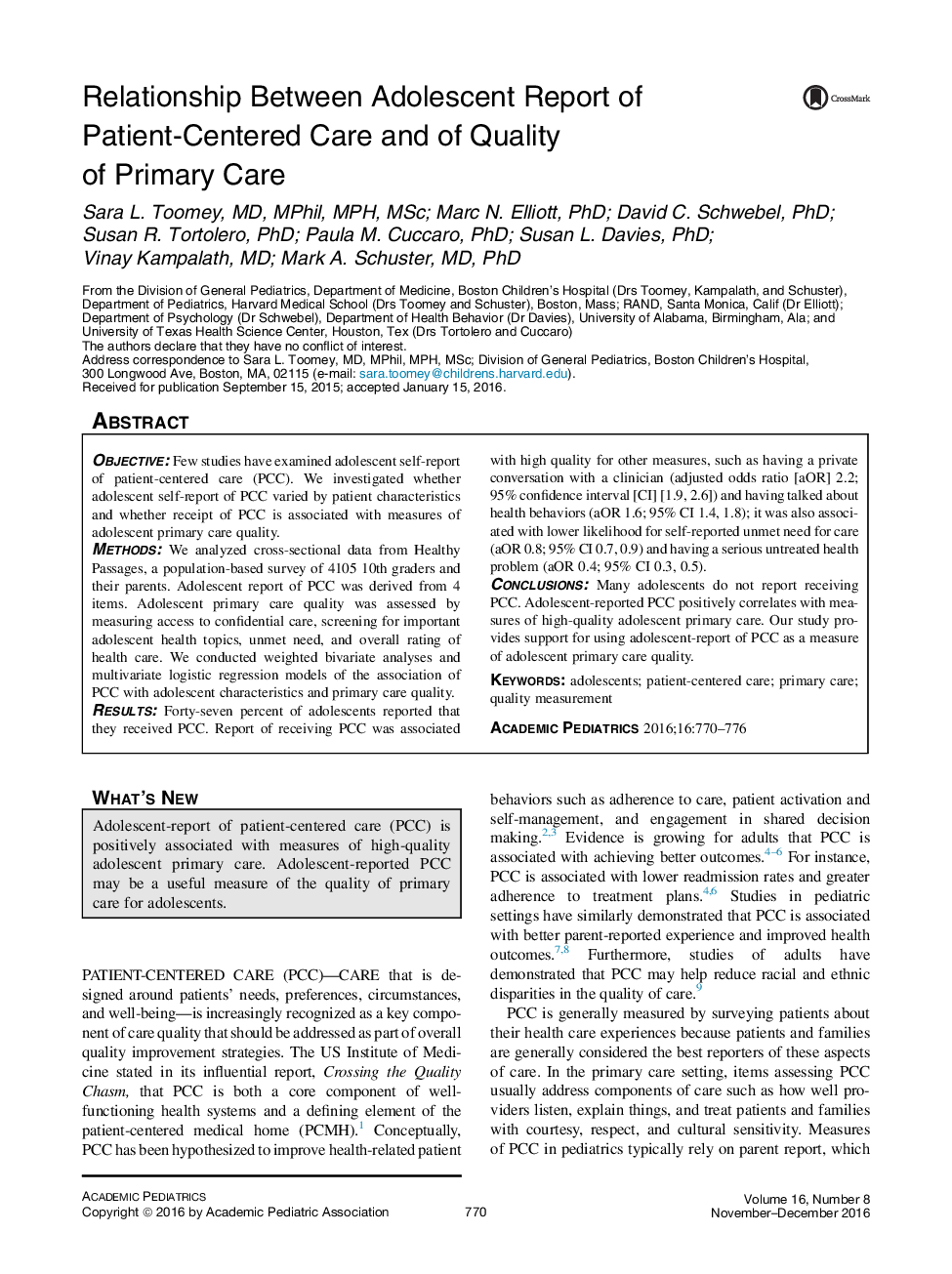| Article ID | Journal | Published Year | Pages | File Type |
|---|---|---|---|---|
| 5716792 | Academic Pediatrics | 2016 | 7 Pages |
ObjectiveFew studies have examined adolescent self-report of patient-centered care (PCC). We investigated whether adolescent self-report of PCC varied by patient characteristics and whether receipt of PCC is associated with measures of adolescent primary care quality.MethodsWe analyzed cross-sectional data from Healthy Passages, a population-based survey of 4105 10th graders and their parents. Adolescent report of PCC was derived from 4 items. Adolescent primary care quality was assessed by measuring access to confidential care, screening for important adolescent health topics, unmet need, and overall rating of health care. We conducted weighted bivariate analyses and multivariate logistic regression models of the association of PCC with adolescent characteristics and primary care quality.ResultsForty-seven percent of adolescents reported that they received PCC. Report of receiving PCC was associated with high quality for other measures, such as having a private conversation with a clinician (adjusted odds ratio [aOR] 2.2; 95% confidence interval [CI] [1.9, 2.6]) and having talked about health behaviors (aOR 1.6; 95% CI 1.4, 1.8); it was also associated with lower likelihood for self-reported unmet need for care (aOR 0.8; 95% CI 0.7, 0.9) and having a serious untreated health problem (aOR 0.4; 95% CI 0.3, 0.5).ConclusionsMany adolescents do not report receiving PCC. Adolescent-reported PCC positively correlates with measures of high-quality adolescent primary care. Our study provides support for using adolescent-report of PCC as a measure of adolescent primary care quality.
